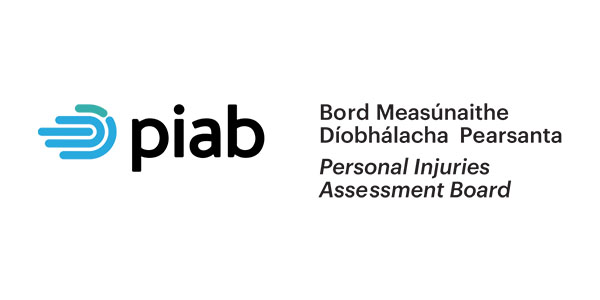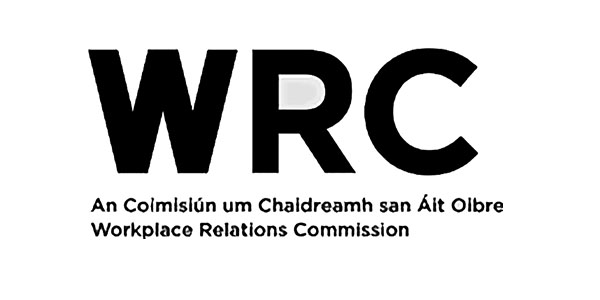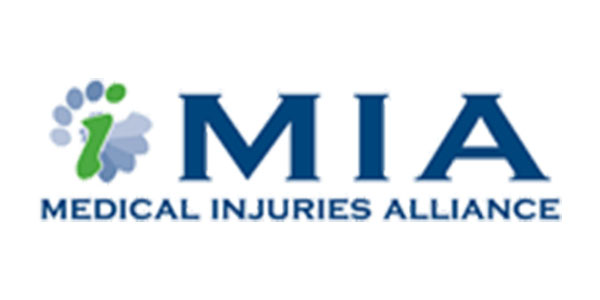Overview
Accident at work claims can be quite straightforward. A solicitor must be able to prove that an employer failed in their duty to ensure a safe working environment for its employees. Specifically, that they failed in their legal obligation to remove or reduce a hazard that caused your accident.
So, if a court finds that the employer could have taken ‘reasonable steps’ to prevent your accident, it is likely that your claim will be successful
If you have been injured at work as a result of the negligence of your employer, a co-worker, materials or equipment used, contact our expert accident at work solicitors now.
We handle all types of injury claim, for people working in all types of environment, from construction, manufacturing and agriculture to offices, shops and restaurants.
No matter what industry you work in, you face health and safety risks. You may think working in an office is entirely safe. However, you could develop carpal tunnel or another injury over a period of time. However, you face a much higher risk of injury when you work in more physically demanding industries. Many work injuries are related to:
Construction-As a construction worker, you face injuries from the vehicles and machinery you work with.
Transportation-A significant percentage of work-related injuries arise due to auto accidents. Whether you were in a car accident in your work vehicle while on duty, or you were struck by a vehicle while working, a solicitor can help you recover the compensation you deserve.
Heavy equipment and machinery-Many industries require tools, heavy equipment, and significantly large machinery to perform certain work duties. Using these items comes with a myriad of risks, including entanglement, electric shock or electrocution, and much more. After an equipment or machinery accident, a solicitor will protect your rights and explain your legal options to recover compensation.
Some of the most common work-related injuries are:
- Muscles strains and tears
- Repetitive motion injuries
- Back and shoulder injuries
- Broken bones
- Lacerations
- Traumatic brain injuries, including concussions
- Spinal cord injuries
- Amputations
- Burns
- Chemical burns
- Smoke or fume inhalation
We also handle claims for industrial disease and occupational illness, including those relating to respiratory problems due to dust, chemicals or fumes; pneumoconiosis; occupational asthma; emphysema; asbestos related diseases, including asbestosis and mesothelioma; deafness due to a noisy working environment; ‘Vibration White Finger’ due to working with vibrating tools; skin conditions caused by chemicals or other irritants; and ‘Miner’s Knee’ caused by excessive kneeling and crawling.
After determining liability, we will help you calculate your damages. During a personal injury claim, regardless of whether it’s related to work or not, you may have the right to pursue compensation for:
- Medical expenses
- Loss of income
- Pain and suffering
- Disability
- Disfigurement
- Mental anguish
- Loss of consortium
Employers have a duty of care towards their employees which includes a responsibility to ensure the safety of their employees. If an employer is negligent in this regard or fails to take reasonable care for an employee resulting in injury, then you are entitled to bring the claim for compensation for any injury you sustained while at work.
An employer has a number of responsibilities:-
- maintain a safe workplace, machinery and equipment
- use appropriate measures to prevent risks that may come from the use of equipment, articles or substances
- prevent any improper conduct or behaviour which could potentially put the safety, health and welfare of employees at risk
- ensure that employees receive proper health and safety training and the dog training is kept up to date
- provide protective clothing and equipment
- appoint a suitably qualified health and safety officer
- carry out risk assessments for the workplace to identify any potential hazards that could lead to an accident in the workplace
Common types of construction accidents
- lifting accidents
- falls from ladders, scaffolding and roofs
- trip and fall accidents
- accident as a result of faulty electrics, faulty machinery and equipment
- scaffolding accidents on construction sites
- vehicle accidents
- accidents involving cranes
- accidents due to insufficient personal protective equipment(PPE)
We thoroughly investigate employment-related on-the-job injuries and obtain the evidence necessary to help determine fault and choose the best course of legal action. Such evidence may include witness statements, contracts, company and inspection records. We also retain industry experts in fields such as occupational safety and health, construction, engineering and others to ensure accuracy and consistency.
Fall from heights are the leading cause of construction worker deaths. Fatalities are more common in smaller construction companies with fewer than 10 employees. 46 people died in workplace accidents in Ireland in 2019. This was an 18% rise on the previous year. The largest number of fatal accidents occurred in Agriculture, Forestry and Fishing.
In 2019, 9,335 non-fatal injuries were reported to the HSA. The significant percentage of injuries arose out of poor manual handling. 2,275 injuries related to slipping or falling in the workplace. The highest rates of injury in 2018 were in the Mid-West region of Clare, Tipperary and limerick while the lowest rates of injury were in the West region of Mayo, Galway and Roscommon.
Losing a body part can lead to life-long difficulties for both victims and their families. It can generate years of physical and psychological struggles requiring extensive rehabilitation and daily life adjustments. Simple tasks such as buttoning a shirt or walking become challenging and frustrating, and costly medical bills can be upsetting and stressful.
Many victims of traumatic accidents have suffered serious life changes due to the loss of:
- An upper limb including fingers, a hand, wrist, forearm, upper arm, shoulder blade or collar bone;
- A lower extremity including toes, a foot, lower or upper leg, or pelvis;
- Facial parts including eyes and eyelids, ears, a nose and lips
What kind of accidents can I claim for?
In today’s busy workplaces, there are hundreds of ways that you can sustain an injury that wasn’t your fault. However, these are some of the accident at work claims that we typically handle for our clients:
- Construction Accidents
- Loss of Limb
- Physical Injuries
- Fatality
- Crush Injuries
- Road Traffic Accidents
- Slip, Trip and Fall
- Fall from Heights
- Falling Objects
- Electric Shock
- Over Exposure
- Repetitive Strain Injuries
- Cuts and Lacerations
- Defective Equipment
- Factory and Warehouse Accidents
- Military Accidents
- Physical Assaults in the workplace
Can I claim for an accident at work?
Many workplaces are dangerous to a certain extent, which is why there are now strict legislation governing everything from how needles are disposed of in hospitals to who is allowed to build scaffolding on construction sites.
Unfortunately, safe working practices aren’t always followed and safety equipment isn’t always up to scratch.
In these cases, accidents can and do happen, often leaving workers with serious injuries or illnesses that can lead to loss of earnings, and sometimes even loss of life. That’s when you need to talk to a legal firm with the experience to help you seek the injury at work compensation you deserve.
Is my employer responsible for my accident at work?
Even if your accident was caused by a colleague’s actions or negligence, your employer is ultimately responsible for keeping you from harm in the workplace. That shouldn’t put you off from making a compensation claim for an accident at work.
Every employer, should have employee liability insurance, to make sure they can pay compensation for any accidents at work that result in illness or injury, without it affecting the firm financially.
What is my accident at work claim worth?
Naturally, every compensation claim depends on the serious of the injury as well as the chances of you making a full recovery.
As you would expect, compensation payments for limb injuries and amputations vary greatly, as factors such as loss of mobility, loss of earnings and trauma suffered are all taken into account. However, our specialist solicitors fully understand the complexities and difficulties of every limb injury, and so will always seek to claim compensation that enables rehabilitation to begin at the earliest possible stage, and for you to get on with the rest of your life to the fullest extent possible. That’s why we make the pursuit of early interim payments a key part of our strategy when handling serious injury cases on behalf of our clients.
Where there are future needs, such as house adaptations and modifications, rehabilitation and treatment as well as any loss of earnings, we will always factor those costs into your compensation claim.
Other factors that might affect the value of your claim might be lost earnings or any unexpected medical expenses you may have had. Our goal is always to get you the highest possible amount of injury at work compensation to ensure you can move on with your life.
How much can I claim for my injury?
Loss of a Finger – €145,700 award for man who lost part of his finger. The High Court in Massey v Stagg [2017] IEHC 21, awarded a Plaintiff, who suffered severe injury while playing football and later had most of his middle finger amputated, the sum of €145,700.
Crush Finger Injury – The High Court in Connolly v FAS [2017] IEHC 472 awards Plaintiff €281,500 damages who suffered a crush injury from a circular saw table on his ring finger leading to amputation
Electric Shock – The High Court in Watters v Dunnes Stores [2015] IEHC 750, awarded €47,500.00 an employee of Dunnes Stores after receiving electric shock from cardboard compacting machine.
Loss of Leg – The High Court in Murphy v County Galway Motor Club Ltd [2011] IEHC 135 awards €200,000 general damages to spectator who lost leg following accident at motor rally.
Leg Injury – The High Court awards Plaintiff €189,409.50 where the Plaintiff suffered severe lacerations to her right calf in the course of her employment.
Fall from Scaffolding – The High Court in Ruffley v Ryan [2016] IEHC 45, awards Plaintiff a total sum of €323,481.50 where he suffered severe injuries after falling from scaffolding during the course of his employment.
No win no fee accident at work compensation claims
We believe that everyone should be able to afford justice when they are injured through no fault of their own.
That’s why personal injuries actions can be dealt with on a No win no fee basis. This means there’ll be no cost if a person was to lose their case and therefore, seeking justice will have no financial risk.
Baxter Mimnagh Solicitors will provide a sympathetic, professional and honest approach to people who come to us with workplace injuries.
When you have suffered an accident at work, you need experts you can talk to and trust. Contact our accident at work solicitors on.






